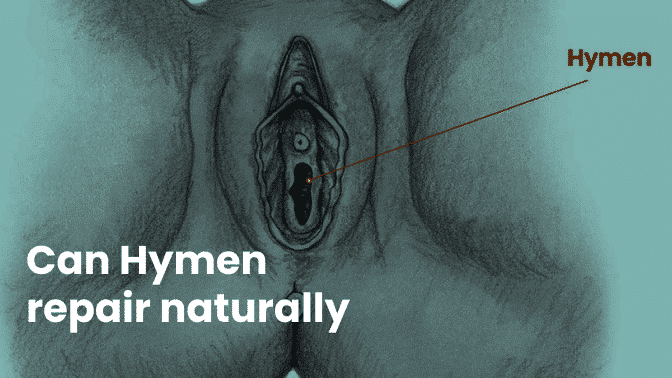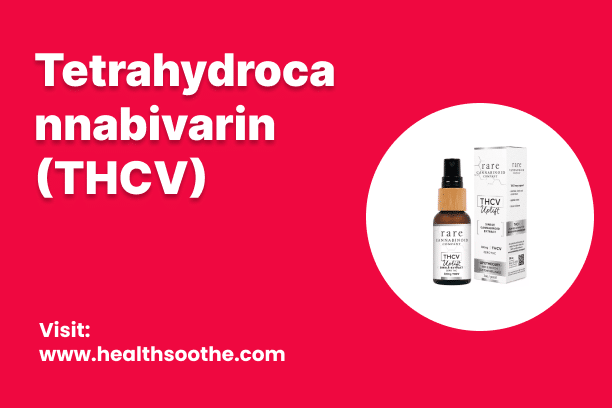The hymen is a thin membrane that partially covers the vaginal opening in some women. It has traditionally been associated with virginity and sexual purity, leading to a range of cultural and social expectations and norms around its presence or absence.
However, the hymen can be torn or stretched in many ways besides sexual intercourse, such as through physical activity or tampon use. As a result, some women may experience a tear in their hymen and wonder if it can repair itself naturally.
The short answer is that it is possible for the hymen to heal themselves, but it depends on the severity and location of the tear. In some cases, the hymen may heal on their own over time with no medical intervention needed.
This is more likely if the tear is small and located towards the edge of the hymen. However, if the tear is larger or located closer to the centre of the hymen, it may not heal completely on its own.
There are also some factors that can affect the healing process, such as the individual's age, overall health, and hormonal status. Younger women may have a better chance of healing naturally, as their bodies are still growing and developing.
Hormonal changes, such as those associated with pregnancy or menopause, can also impact the healing process. Women who smoke or have other health issues may have a harder time healing, as their bodies may not be able to repair tissue as effectively.
Read Also: Prolapse Is Ruining My Life | Living Your Life to The Fullest with Pelvic Organ Prolapse (POP)
The main importance of hymen repair naturally
The importance of hymen repair naturally depends on the individual's personal beliefs and values, as well as cultural and societal expectations. For some women, the hymen is seen as a symbol of virginity or sexual purity, and a torn or absent hymen can lead to shame, stigma, or even violence in certain cultures or communities.
In such cases, the ability to repair the hymen naturally can provide a sense of reassurance or validation for women who wish to maintain cultural or religious traditions around virginity. It may also be a way for women to reclaim agency over their bodies and sexual experiences in the face of external pressures or expectations.
- Reinforcing harmful gender stereotypes and discrimination: The emphasis on the hymen as a symbol of virginity or sexual purity can perpetuate harmful beliefs around gender roles and expectations and may reinforce discrimination and violence against women who do not conform to these norms.
- Encouraging harmful and risky behaviour: The pressure to maintain or repair the hymen can lead to risky sexual behaviours or practices, such as avoiding contraception or engaging in non-consensual sexual activity, in order to avoid damaging the hymen.
- Ignoring the importance of consent and communication: Focusing on the hymen as a measure of sexual purity or experience can overshadow the importance of consent, communication, and mutual respect in sexual relationships, which are crucial for healthy and safe sexual experiences.
- Reinforcing stigma and shame: The emphasis on the hymen as a symbol of virginity can lead to shame or stigma for individuals who do not conform to these expectations and may prevent them from seeking support or resources for sexual health and wellbeing.
- Overlooking the medical irrelevance of the hymen: The hymen itself has no medical relevance or function, and its presence or absence should not be used as a measure of a person's worth or value. Focusing on the importance of hymen repair naturally can distract from more important issues related to sexual health and well-being.
In summary, it's important to challenge and dismantle harmful beliefs and norms around virginity and purity, and prioritize respectful, consensual, and safe sexual practices.
The importance of hymen repair naturally should be examined critically, and individuals should make decisions about their bodies and sexual experiences based on their own beliefs and values, rather than external pressures or expectations.
How long does it take to grow your hymen back?
The growth of hymen tissue varies from person to person, and there is no set timeline or guarantee for its regrowth. The hymen is a thin membrane that surrounds or partially covers the vaginal opening, and it can be torn or stretched during various activities, including sexual intercourse, physical exercise, tampon use, or medical procedures.
While the hymen can tear or stretch, it does not "break" or disappear completely. Rather, it may thin out or develop small openings over time, and may not be visible or detectable by a doctor or partner. In some cases, the hymen may appear intact or partially healed, even if it has been stretched or torn in the past.
If someone is interested in attempting to regrow their hymen, there is no guaranteed way to do so. Some websites and sources suggest various methods, such as inserting herbs or oils into the vagina or avoiding tampon use, but there is no scientific evidence to support these claims.
It's important to prioritize safe and consensual sexual practices and to make decisions about one's body and sexual experiences based on personal beliefs and values, rather than external pressures or expectations.
The hymen should not be used as a measure of a person's worth or value, and its presence or absence has no impact on a person's health or well-being.
Conclusion
The hymen can potentially repair itself naturally in some cases, but it depends on the severity and location of the tear, as well as individual factors like age and overall health.
While hymenoplasty is an option for some women, it's important to remember that the presence or absence of a hymen does not define someone's sexual experience or identity.
It's also important to prioritize consent and communication in sexual relationships, rather than focusing on outdated and harmful notions of virginity and purity.
Can Hymen Repair Naturally?
Q1: What is the hymen?
A1: The hymen is a thin membrane that partially covers the opening of the vagina in some females. It varies in shape, size, and thickness and is often associated with virginity. However, it is important to note that the presence or absence of a hymen is not an accurate indicator of sexual activity or virginity.
Q2: Can the hymen repair naturally?
A2: The hymen cannot repair itself naturally once it has been stretched or torn. The hymen is made of thin, elastic tissue that can be stretched or torn due to various activities, including sexual intercourse, tampon use, or sports activities. Once the hymen is damaged, it does not have the capacity to regenerate or heal itself.
Q3: What is hymenoplasty?
A3: Hymenoplasty, also known as hymen reconstruction or hymenorrhaphy, is a surgical procedure that aims to repair or reconstruct a damaged or torn hymen. This procedure is typically done for cultural, religious, or personal reasons, and not for medical purposes. It is essential to discuss the risks, benefits, and alternatives with a qualified medical professional before considering this surgery.
Q4: Are there any non-surgical ways to repair the hymen?
A4: There are no scientifically proven non-surgical methods to repair or restore the hymen. Over-the-counter products or herbal remedies claiming to restore the hymen are not medically supported and can potentially cause harm or infection. It is crucial to consult a healthcare professional for any concerns regarding the hymen or vaginal health.
Q5: Does a broken hymen always cause pain or bleeding?
A5: No, not everyone experiences pain or bleeding when their hymen is stretched or torn. The experience varies from person to person, depending on factors such as the hymen's thickness, elasticity, and individual pain tolerance. Some people may not even notice when their hymen is torn or stretched.
Q6: Can a healthcare professional determine if a hymen is intact or not?
A6: It can be difficult for a healthcare professional to definitively determine if a hymen is intact or not because the hymen varies greatly in appearance and can be affected by various factors other than sexual activity. It is essential to remember that the presence or absence of a hymen is not a reliable indicator of sexual activity or virginity.








